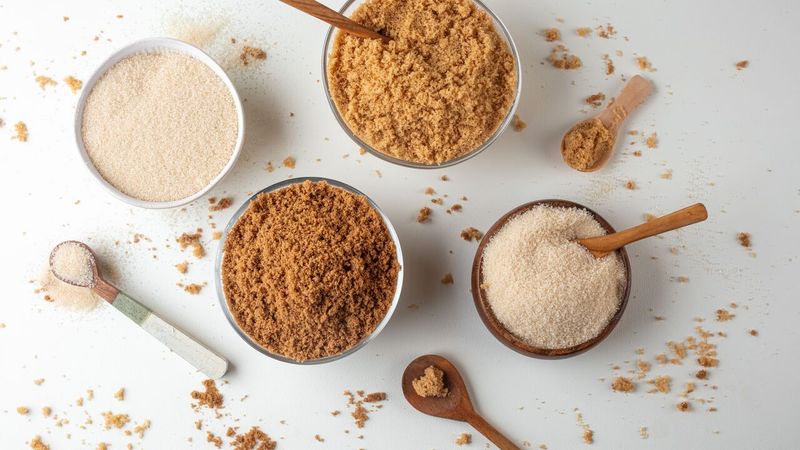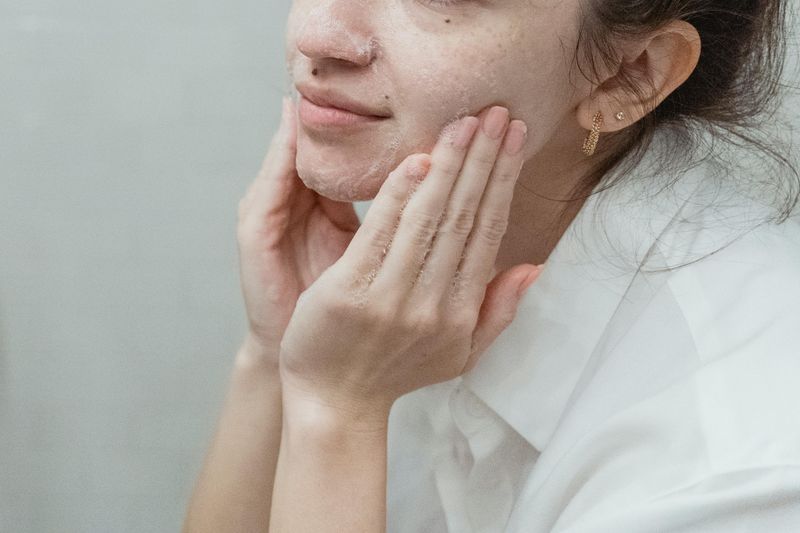13 Ways to Boost Immunity Without Reaching for Pills
Your immune system works around the clock to protect you from illnesses, but sometimes it needs a helping hand. Instead of immediately turning to supplements, there are many natural ways to strengthen your body’s defenses. These simple lifestyle changes can make a big difference in how well your immune system functions and how quickly you bounce back from sickness.
1. Prioritize Sleep

Your body repairs itself during sleep, creating powerful immune cells that fight off invaders. When you skimp on rest, these natural defenses weaken, leaving you more vulnerable to catching that cold going around the office. Most adults need 7-9 hours of quality sleep each night. Creating a consistent bedtime routine signals to your body it’s time to wind down.
Try darkening your room completely and keeping electronics out of reach. During deep sleep phases, your body produces cytokines—special proteins that target infection and inflammation. This nighttime immune work is so powerful that even one night of poor sleep can temporarily reduce immune cell activity by 70%.
2. Eat More Whole Plant Foods

Colorful fruits and vegetables contain special compounds called antioxidants that help your immune cells work better. These plant foods also provide fiber that feeds the good bacteria in your gut, where much of your immune system lives. Berries, citrus fruits, leafy greens, nuts, and beans should make regular appearances on your plate.
The vibrant colors in these foods signal the presence of different immune-supporting nutrients like vitamin C, vitamin A, and zinc. Try adding one new vegetable to your shopping cart each week. Eating a rainbow of plant foods daily gives your body different protective compounds that work together to strengthen your natural defenses against germs.
3. Stay Physically Active

Moving your body gets your blood pumping, which helps immune cells travel throughout your system more efficiently. Regular exercise also flushes bacteria from your lungs and airways, reducing your chance of getting sick. You don’t need intense workouts to see immune benefits. A brisk 30-minute walk, a bike ride around the neighborhood, or a yoga session can do wonders.
The key is consistency rather than intensity. Exercise also helps lower stress hormones that can suppress your immune function. Many people notice they get sick less often when they maintain regular physical activity. Just remember to start slowly if you’re new to exercise, and avoid extreme workouts when you’re already feeling under the weather.
4. Manage Stress Effectively

Stress hormones like cortisol can hamper your immune cells from doing their job properly. When you’re constantly worried or overwhelmed, your body diverts resources away from immune function to handle the perceived threat. Finding what calms your mind is personal—maybe it’s deep breathing exercises, a nature walk, or five minutes of meditation.
Small stress-busting breaks throughout your day can make a big difference in how well your immune system functions. Keep a journal by your bed to write down worries before sleep. This simple act helps clear your mind and prevents stress from disrupting your rest. Remember that chronic stress is different from occasional pressure—it’s the ongoing kind that really takes a toll on your immune defenses.
5. Hydrate Well

Water powers every system in your body, including your immune response. Staying hydrated helps your body naturally eliminate toxins and waste materials through urine, sweat, and bowel movements. Your lymphatic system—a network of vessels that transports white blood cells—relies on adequate fluid levels to work efficiently.
When you’re dehydrated, this system slows down, making it harder for immune cells to reach infection sites quickly. Jazz up plain water with slices of lemon (adding vitamin C) or cucumber for flavor. A good rule of thumb: if your urine is pale yellow, you’re likely well-hydrated. Darker yellow signals you need more fluids. Remember that caffeine and alcohol can actually dehydrate you, so balance these with extra water intake.
6. Eat Fermented Foods

Tangy yogurt, zippy kimchi, and crunchy sauerkraut aren’t just flavor powerhouses—they’re immune boosters too! These foods contain beneficial bacteria that strengthen your gut lining, where nearly 70% of your immune system resides. The good bugs in fermented foods help crowd out harmful bacteria that might otherwise trigger inflammation.
They also produce short-chain fatty acids that nourish the cells lining your intestines, creating a stronger barrier against pathogens. Start small if you’re new to fermented foods—perhaps a spoonful of sauerkraut with dinner or a small cup of yogurt with breakfast. Look for products labeled “contains live cultures” for maximum benefit. Even a small daily serving can make a noticeable difference in your immune resilience over time.
7. Limit Added Sugar and Refined Carbs

Sugar temporarily disarms your immune cells, making them less effective at capturing bacteria and viruses. Just one can of soda can suppress your immune system for hours afterward, creating a window where germs have an easier time taking hold. White bread, pastries, and other refined carbs quickly convert to sugar in your bloodstream, triggering similar immune-dampening effects.
They also feed the unhelpful bacteria in your gut, creating an imbalance that weakens immune function. Satisfying your sweet tooth with whole fruits provides fiber that slows sugar absorption, minimizing the immune impact. When baking, try using half the sugar called for in recipes—you’ll likely find you don’t miss it. Reading food labels helps too—sugar hides under many names like corn syrup, dextrose, and sucrose.
8. Soak Up Some Sun

Sunshine does more than brighten your mood—it triggers your skin to produce vitamin D, a crucial nutrient for immune function. Without enough vitamin D, your immune cells can’t properly activate to fight invaders. Morning sun exposure has the added benefit of helping regulate your sleep cycle. Aim for 10-30 minutes of midday sun several times weekly, with some skin exposed (without sunscreen for this brief period).
The exact time needed varies based on your skin tone, location, and season. People with darker skin need more sun exposure to produce the same amount of vitamin D as those with lighter skin. During winter months in northern climates, getting adequate vitamin D from sunshine alone becomes challenging. In these cases, spending time outdoors during daylight hours still benefits your immune system through stress reduction and fresh air.
9. Laugh Often

A good belly laugh doesn’t just feel great—it triggers the release of immune-boosting neuropeptides. These special messengers help fight stress and potentially harmful viruses and bacteria. Laughter increases the number of antibody-producing cells and enhances the effectiveness of T-cells, making your immune system more aggressive against invaders.
Studies show that humor improves the body’s resistance to disease by increasing immunoglobulin A, an important antibody that protects against respiratory infections. Call that friend who always makes you chuckle, watch your favorite comedy, or play with pets or children who bring out your playful side. Even smiling can start the process of releasing immune-friendly brain chemicals. The beauty of laughter as medicine? It has no negative side effects—only positive ones for both mind and body.
10. Keep Good Hygiene Habits

Simple hand washing removes germs before they have a chance to enter your body. The mechanical action of scrubbing with soap breaks down the fatty outer layer of many viruses and bacteria, rendering them harmless. Beyond hand washing, regularly cleaning high-touch surfaces like doorknobs, light switches, and phones prevents germ buildup.
Many people touch their faces about 23 times per hour without realizing it—each touch is an opportunity for infection if your hands aren’t clean. Carrying a small hand sanitizer for times when soap isn’t available provides backup protection. While good hygiene prevents infection, it doesn’t mean living in a sterile bubble. Some exposure to everyday germs actually helps train your immune system to respond appropriately to threats, maintaining a healthy balance between protection and overreaction.
11. Get Fresh Air Daily

Indoor air typically contains five times more pollutants than outdoor air, which can irritate your respiratory system and tax your immune defenses. Stepping outside gives your lungs a break from these concentrated indoor contaminants. Fresh air also contains phytoncides—natural compounds released by plants that boost your natural killer cells. These specialized immune cells seek out and destroy infected cells in your body.
Forest walks offer particularly high concentrations of these beneficial plant compounds. Even in colder months, bundle up for short outdoor breaks. If getting outside isn’t possible, opening windows for cross-ventilation helps flush indoor pollutants. Adding houseplants to your living space can further improve air quality by filtering toxins and adding moisture to dry indoor air, creating conditions where your respiratory system—your first line of immune defense—can function optimally.
12. Establish a Consistent Daily Routine

Your body thrives on predictability. Going to bed, waking up, and eating meals at regular times helps regulate your internal clock, which controls many immune functions. This consistency allows your body to allocate resources efficiently. Hormone production—including those that regulate immunity—follows daily patterns. When these patterns get disrupted by irregular schedules, your immune response can weaken.
Many immune cells actually increase their activity at specific times of day. Start by establishing consistent sleep and wake times, even on weekends. Then add regular meal times, exercise periods, and relaxation breaks. Your immune system will respond with more efficient pathogen-fighting and faster recovery when challenged. Even small steps toward more consistency can yield noticeable improvements in how frequently you get sick and how quickly you bounce back.
13. Connect With Others Regularly

Human connection isn’t just good for your mood—it actually strengthens your immune response. Studies show people with strong social ties have more robust natural killer cell activity and better resistance to upper respiratory infections. Positive social interactions reduce inflammation markers in your blood and increase protective antibodies. A simple hug releases oxytocin, which has been linked to healthier immune function.
Even virtual connections count when in-person meetings aren’t possible. Quality matters more than quantity when it comes to relationships. A few meaningful connections provide more immune benefit than many superficial ones. Make time for regular check-ins with friends and family, join community groups around shared interests, or volunteer—all boost your body’s defense systems while enriching your life. Isolation, by contrast, can trigger the same inflammatory response as physical threats, weakening immunity over time.

Comments
Loading…